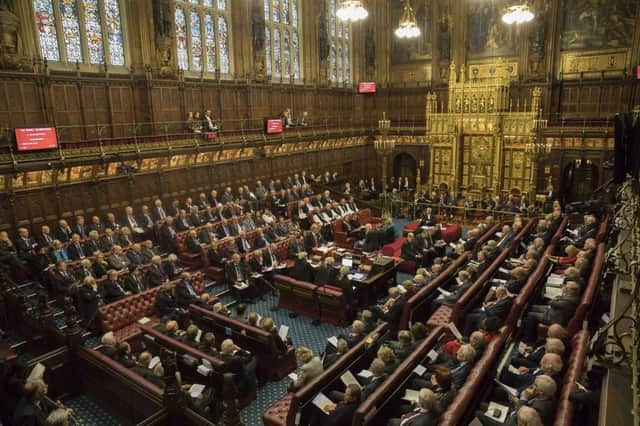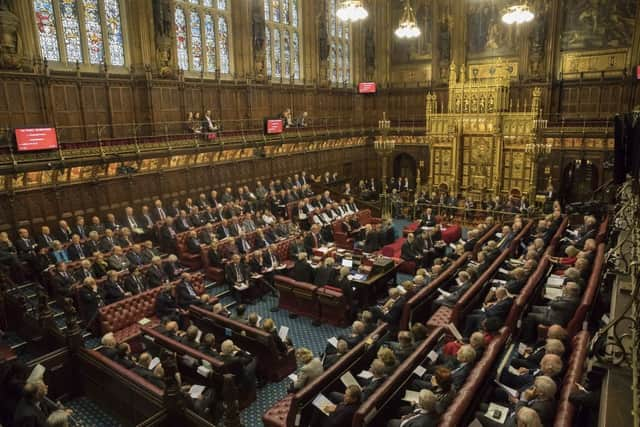What is the House of Lords? What does it do in the UK, why does Keir Starmer want to abolish it - members


Labour would look to eliminate the "indefensible" House of Lords "as quickly as possible," ideally within its first term, according to Sir Keir Starmer.
The move is just one headline proposal that forms part of Labour’s plans for a "New Britain," as outlined in a report of its commission on the future of the United Kingdom, led by former Prime Minister Gordon Brown.
Advertisement
Hide AdAdvertisement
Hide AdAs well as replacing the House of Lords with a new democratic assembly of nations and regions, the report recommends granting local communities additional powers over skills, transportation, planning, and culture to encourage growth.
As Labour launched its blueprint for political and economic devolution, Starmer vowed to "unbind" Britain from a political centre that has "not delivered,” and said people are being held back by a "broken model" that "hoards power in Westminster," according to the party’s head, with the country "crying out for a new approach."
But what exactly is the House of Lords, what does it do, and what are Labour proposing to replace it? Here is everything you need to know.
What is the House of Lords?
The House of Lords is one of the UK’s two Houses of Parliament which, along with the House of Commons, combine to form the UK’s government and parliament.
Advertisement
Hide AdAdvertisement
Hide AdUnlike the House of Commons, members of the House of Lords are not voted for or elected by the public, and instead are chosen by the House or by other hereditary peers in their parties.
While the number of members in the House of Commons is fixed, the number of members in the House of Lords is not, and it currently has 786 members in office.


What does the House of Lords do?
Bills approved by the House of Commons are scrutinised by the House of Lords, and the house reviews and changes bills from the Commons on a regular basis.
While it cannot prohibit bills from becoming law, except for in rare circumstances, it can postpone measures and push the Commons to reconsider their decisions. In this position, the House of Lords functions as a sort of independent check on the more powerful House of Commons.
Why do Labour want to get rid of it?
Advertisement
Hide AdAdvertisement
Hide AdStarmer has said that his party will strive to remove the upper chamber of Parliament "as soon as possible," ideally within the first term of a future Labour government, stating that the sooner Labour abolishes hereditary peers, the better.
Former Labour leader and Prime Minister Gordon Brown, who led the report, has stated that the current upper chamber is "indefensible" and must be abolished. In a briefing with journalists ahead of the report’s release, Brown said that the issue might "come to a head" when Boris Johnson announces his resignation honours list, which is expected to include a number of new peers.
The former Labour leader said there was a feeling many in the Lords were there “simply because they have been friends with the Conservative Party and not because of their contribution to public policy”.
What would replace it?
Labour has said that it would abolish the House of Lords and replace it with a new democratic upper chamber that would play a key role in preserving the devolution settlement by upholding the Sewell Convention, which states that Westminster should not normally legislate in devolved areas without consent.
Advertisement
Hide AdAdvertisement
Hide AdWhen asked when his party would implement the proposal to eliminate the upper chamber, Starmer only stated that he hoped to do it within the first five years of government.
Starmer has said that some of the reforms, such as the democratic assembly to replace the Lords, could have to wait for a Labour government to return for a second term.
Comment Guidelines
National World encourages reader discussion on our stories. User feedback, insights and back-and-forth exchanges add a rich layer of context to reporting. Please review our Community Guidelines before commenting.
